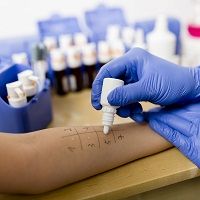New Test to Aid Melanoma Diagnosis: Ready for Clinical Use?
myPath Melanoma, a new 23-gene signature test fromMyriad Genetics, could potentially differentiate between malignant melanoma and benign skin moles in nearly 15% of cases where histopathologic analysis is not considered straightforward.

myPath Melanoma, a new 23-gene signature test fromMyriad Genetics, could potentially differentiate between malignant melanoma and benign skin moles in nearly 15% of cases where histopathologic analysis is not considered straightforward.
In study results published in the Journal of Cutaneous Pathology, Loren Clarke, MD, Medical Director for Dermatology at Myriad, and his team analyzed a dataset of 83 melanocyctic lesions to differentiate benign nevi from malignant melanoma, to develop the gene signature for the test.
From the total, the team identified 79 candidate biomarker genes considered the most promising using archival formalin-fixed, paraffin-embedded tissue samples of melanocytic lesions.
The test correctly identified samples that were melanoma and that were benign skin moles with a sensitivity and specificity of 90%.
Loren Clarke, MD, Medical Director for Dermatology at Myriad, said, "myPath Melanoma is a powerful new molecular diagnostic test that analyzes genetic information inside skin cells to help us understand the biology of a patient's skin lesion and objectively differentiate benign moles from potentially lethal melanomas.”
"It is a tool for a pathologist to be used as an adjunct to microscopy," Clarke remarked.
However, it would be premature to base a diagnosis and clinical management on this test on the basis of the results reported so far, said Klaus J. Busam, MD, professor of pathology and laboratory medicine at the Weill Medical College of Cornell University and director of dermatopathology in the Department of Pathology at the Memorial Sloan Kettering Cancer Center in New York City.
"The test strongly correlates with the current gold standard of diagnosis — histopathologic examination," said Busam.
Research indicated there’s no need for additional testing for cases defined as“unequivocally benign or malignant,” since routine histopathologic examination is typically accurate, faster, and cheaper than gene-expression profiling.
However, Busam did explain that, “The test could have clinical value as an ancillary tool for problematic lesions when a pathologist cannot determine whether a lesion is benign or malignant after routine histopathologic review.”
The researchers agree that "additional outcomes-based and prospective studies are needed to further assess the performance of the test."
For now, the test is being offered to pathologists in the United States, through an early-access launch, to diagnose their difficult lesions at no charge.
Myriad continues to gather data in real-world cases, he added. The test requires the submission of five microscopic slides, which are processed within 5 days.